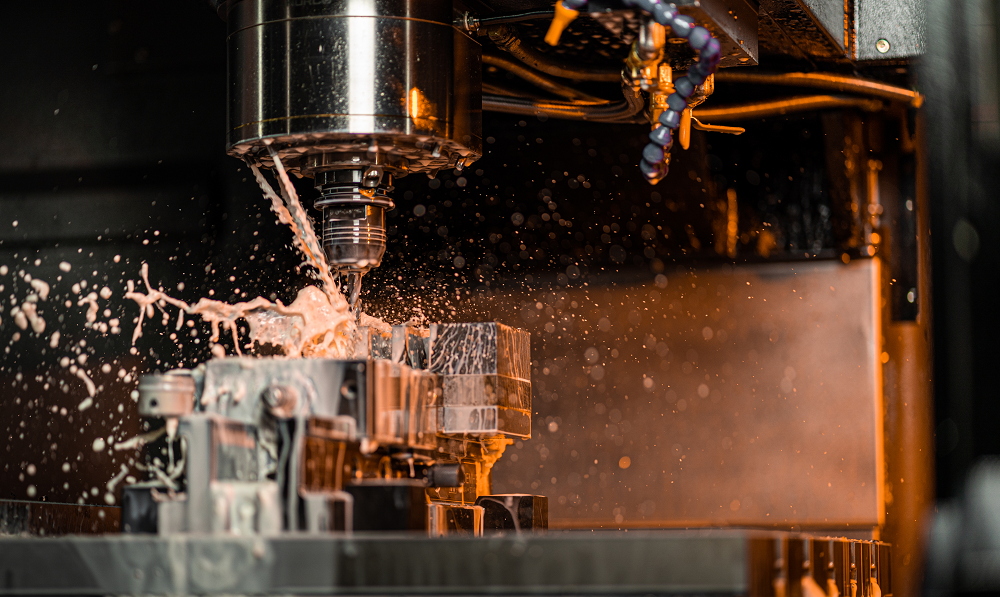Amid global supply chain disruption, more demand for domestic manufacturing, and a growing movement to reshore supply bases, all eyes are on machine shops to help the industry stabilize. For master machinists feeling called to open their own shop, this is a great opportunity to finally fulfill their entrepreneurial dreams and supply metalworking solutions. But opening any kind of business is inherently risky, best approached with both eyes open and clarity about the path forward. Read on to learn more.
What to Know Before You Open Shop
Whether you’re ready to set up shop tomorrow or still daydreaming about opening your own brick-and-mortar location, it’s important to be aware of and embrace the challenges ahead. Here are seven pro tips to better navigate your journey:
1. Have the end in mind
The beauty of entrepreneurship is that your business is there to fulfill your needs as much as your customers. Starting a machine shop just because you can run a CNC mill rarely ends well. Don’t get caught up in what you think your shop has to be; focus on the purpose you want your shop to serve. Do you want to create a lifestyle business to help you achieve financial freedom? Are you looking for a way to elevate your hobby? Or do you want to disrupt the industry and create an empire? There’s no right answer to this question — what’s important is that you ask it and build your business accordingly.
2. Know your strengths and weaknesses
If you’re an expert machinist, that might come at the expense of business acumen and administration. Likewise, if you’re well connected and great at sales, you might not understand machining and engineering. Be aware of your strengths and leverage them, but also find ways to compensate for your weaknesses. Either develop yourself in the areas where you’re lacking or go into business with partners who complement you.
3. Write a formal business plan
Running a business is a complicated journey — one you shouldn’t begin without a roadmap. Before you even buy your first piece of equipment, outline why you’re opening a machine shop, what your goals are, and strategies for success. A well-crafted business plan can also help attract investors, secure loans, and build credibility with potential clients.
4. Understand local safety and compliance regulations
While writing your business plan, remember to research local laws to ensure you comply with safety, material disposal, and facility code requirements. The region you choose to conduct business in can dramatically impact your startup costs and overall profitability.
5. Carefully assess shop location
As with all brick-and-mortar operations, the location of your business and facility specs will impact every aspect of your business. While assessing the building where you want to set up shop, pay attention to attributes like ceiling height, the size of entryways (for forklift clearance), ventilation systems, and the availability and reliability of high-quality power and water supply. Outside the building, make a note of obstacles that could limit parking or logistics, as this can cause delays to supply delivery.
6. Have contracts and commitments before you open shop
Starting a business is incredibly risky, but having momentum from paying customers before you launch can improve financial outlook. After all, one of the worst things you could do as a business owner is lease a building and buy a bunch of equipment, only to have no customers to serve. So before you make any major investments, try to close at least one sale so you have a job lined up when you open shop.
7. Invest in equipment and supplies for the long haul
After making significant capital investments in machinery, it may be tempting to cut costs with inexpensive materials and tools where possible. Coolant is especially often an afterthought and undervalued in an operation, but relying on low-quality cutting fluid could diminish the part quality and hurt your reputation with new customers, indirectly driving up costs with a shorter tool and fluid life. Instead, look for higher-quality coolant that will save you money in the long run. TRIM® cutting fluids are a trusted brand for job shops nationwide that help operators focus on delivering high-quality work while maximizing cost savings.
Strong Partnerships: The Best Metalworking Solutions
Running a machine shop can be both challenging and rewarding, which is why it’s so important to work with vendors and suppliers that value partnership. Master Fluid Solutions goes above and beyond for distributors, and end users, with a team dedicated to educating customers, offering fluid management training, and providing unmatched expertise in cutting tool optimization and innovation. Need help with aligning operations with your business goals? Schedule a consultation, today.

